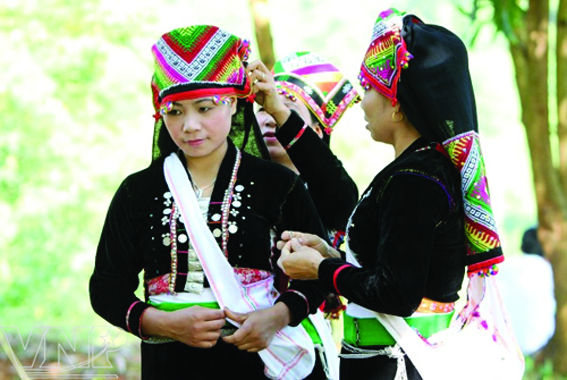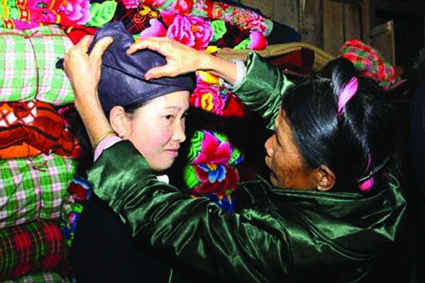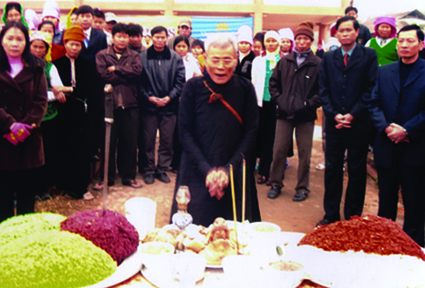>>Customary laws and practices of "Thuy" and "Tong" ethnoses
Ta Thi Tam
Ethnology Institute
Although not being officially listed as an ethnic group in Vietnam with its population of merely some 100, the Thuy community which lives in Thuong Minh village, Tuyen Quang northern province, has managed to preserve its unique cultural traits, especially its strong belief in forest.
Originated from Guizhou in China, Thuy people immigrated into the northernmost province of Ha Giang hundreds of years ago. With their language and customs completely different from other ethnic groups in Ha Giang, the Thuy lived separately and married one another within the community. Given its close relative marriages plus severe living conditions, the group’s population had sharply declined. After the August Revolution in 1945, Thuy people moved to settle in Thuong Minh, attaching their life to forests as this area offers an abundant source of food supply from wild animals and plants.
In Thuy language, forest is called dong which means land rich of plants and animals. The group classifies forests into three types: holy forest, which is forest land believed to be the shelter of the forest deity and other spirits and thus prohibited from logging and hunting; watershed forest, which is reserved for water supply for farming and daily activities; and ordinary forest, which is the common property of the community.
The group has its own way of marking forest boundaries, which has been passed from one generation to another. Thuy people have good knowledge about forests and their own products, such as timber, bamboo shoots, mushrooms, traditional herbs and wild animals. The group hunts deer, squirrel and porcupine and believes that they can be used as medicines particularly good for heath.
The Thuy worships mang mieu (forest deity) who is believed to live in the holy forest with other spirits. Anyone who logs or hunts in this forest will be punished. Every year, villagers hold an offering ritual dedicated to mang mieu to win his support for bumper crops and peace for the whole village. Thuy people believe if they fail to conduct this ceremony, they will meet with misfortunes such as being killed by wild beast or suffering lean crop. This belief was originated from an old tale of the group which told that two expert hunters were killed by wild boar for enraging the forest deity.
The offering ritual to mang mieu is held at 7 am on the third of the first lunar month and lasts till noon. Each family in the village prepares a tray of offerings, which includes a boiled chicken, a plate of pork, a bowl of rice, three cups of wine, a knife and votive papers. These offering trays are placed one after another by a stream in the holy forest where the ritual is conducted by the village sorcerer. After the ritual finishes, attending villagers share the offerings together.
As the Thuy strongly believes in forest and mountain gods, they always seek for their support and advice before doing anything important. In their belief, this can be done through a sacred stone, which must be picked up by a prestigious sorcerer in a high mountain or a deep stream where nobody has set foot to ensure its sacredness. This stone must have a natural hole which is believed to be made by gods and sent to the Thuy as a tool for protecting them. This holy stone is believed to have supernatural power which can expel evil spirits, treat diseases and bring peace for the community. The stone, which is tied to a stick made from an old palm leaf through the hole with a liana, is used in every worshiping ritual of the Thuy and carefully kept by the village sorcerer.-



